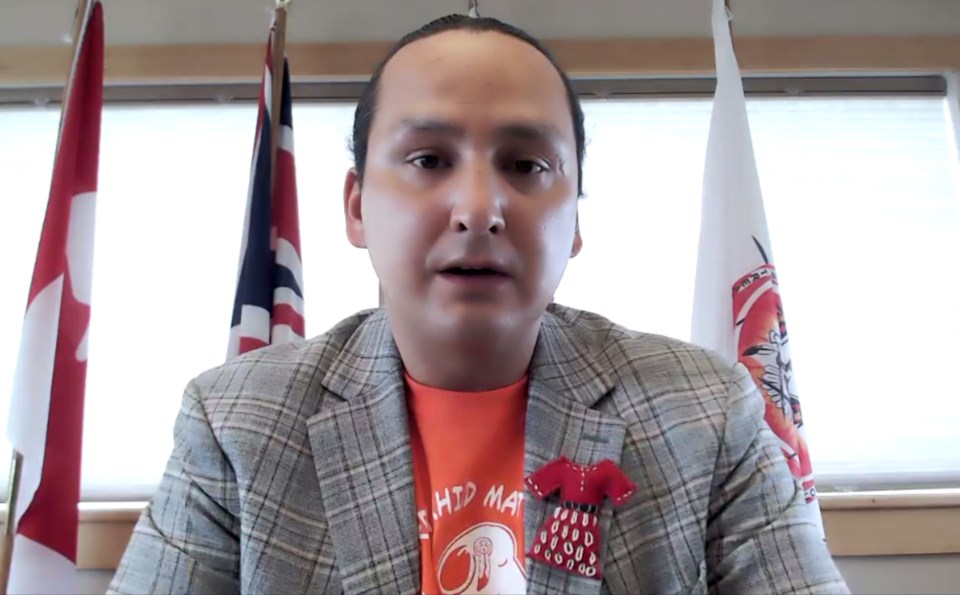That’s Cowessess First Nation Chief Cadmus Delorme's message after hearing that the Pope is willing to visit Canada to apologize for the Catholic Church's role in residential schools.
The announcement comes after an outpouring of calls from Indigenous leaders for a papal apology, and ahead of a December Vatican trip where leaders will meet with the Pope in the hopes of securing one.
"He should be coming here to talk to the residential school survivors and families and descendants of survivors to apologize for the role the Roman Catholic Church played in the legacy we inherited of residential schools," Delorme said.
There is no indication, at this point, whether an apology from the Pope would be guaranteed during a visit.
The Vatican said in a statement that the Canadian Conference of Catholic Bishops invited the Pope to travel to Canada in the “context of the long-standing pastoral process of reconciliation with Indigenous peoples.”
The statement said the Pope indicated his “willingness” to do so at an undetermined date.
Last month, Delorme announced that Cowessess had identified 300 of the 751 unmarked graves uncovered by ground-penetrating radar at the site of Marieval Indian Residential School in June.
Cowessess will be contacting survivors to get their input on a potential visit, he said.
“An apology is the beginning,” said Delorme. “An apology is required, and the rebuilding of a relationship would follow the apology.”
Assembly of First Nations National Chief RoseAnne Archibald echoed the call for a “long overdue” apology. In a post on social media, she added there should also be criminal charges and reparations.
Marc Miller, minister of Crown-Indigenous relations, said a recognition of the church’s role in the schools is important to Indigenous peoples.
“That full recognition of harms caused is something that’s long waited for from the Holy Father himself,” said Miller.
An estimated 150,000 Indigenous children were forced to attend residential schools over a century. More than 60 per cent of the schools were run by the Catholic Church.
The 2015 final report from the Truth and Reconciliation Commission of Canada chronicled the abuses suffered by Indigenous children at federally funded church-run residential schools. It called for a papal apology to be delivered in Canada.
Those calls have grown louder after the discovery of hundreds of unmarked graves at former residential school sites by First Nations.
Criticism has also intensified as concerns have been raised that the Catholic Church didn’t properly compensate residential school survivors as agreed to under a landmark settlement.
The Canadian Conference of Catholic Bishops said in a statement that there have been meaningful discussions with Indigenous people, especially those affected by residential schools.
“We pray that Pope Francis’ visit to Canada will be a significant milestone in the journey toward reconciliation and healing,” said the group’s president, Most Rev. Raymond Poisson.
Little Pine First Nation Chief Wayne Semaganis was one of the leaders present at a ground-penetrating radar search at the Delmas Indian Residential School site in July.
He said any potential papal apology needs action to back it up.
The Pope's visit also can't be limited to a roomful of leaders that can afford to travel to Ottawa, he said.
The visit should be more extensive, with meetings in each province and Treaty territory, he said.
"Truly, if you're sorry, you will do everything you can to prove that you're sorry."
The Indian Residential Schools Resolution Health Support Program has a hotline to help residential school survivors and their relatives suffering trauma invoked by the recall of past abuse. The number is 1-866-925-4419.
With files from the Regina Leader-Post’s Alec Salloum, The Canadian Press' Brittany Hobson in Winnipeg and The Associated Press.




